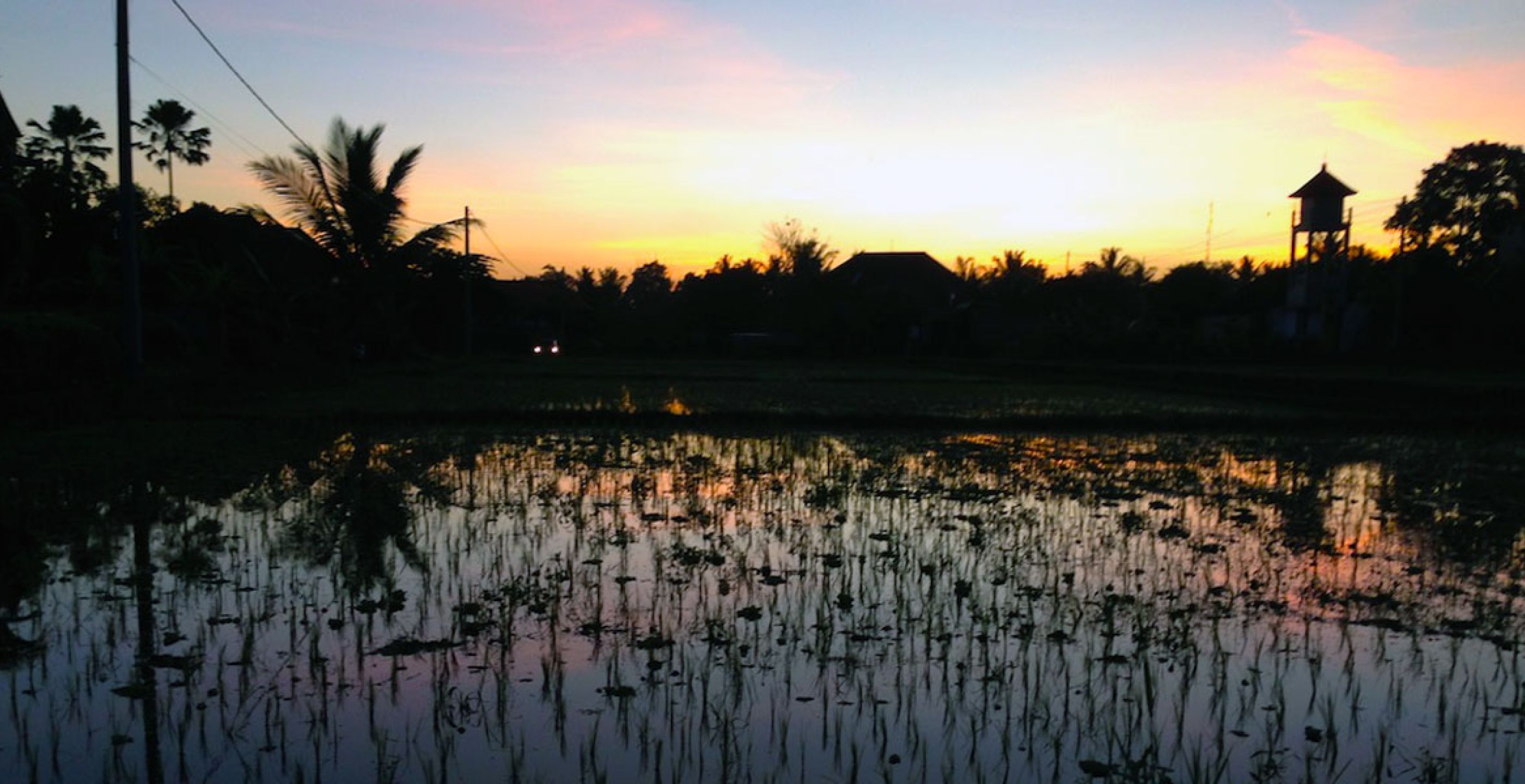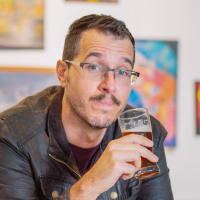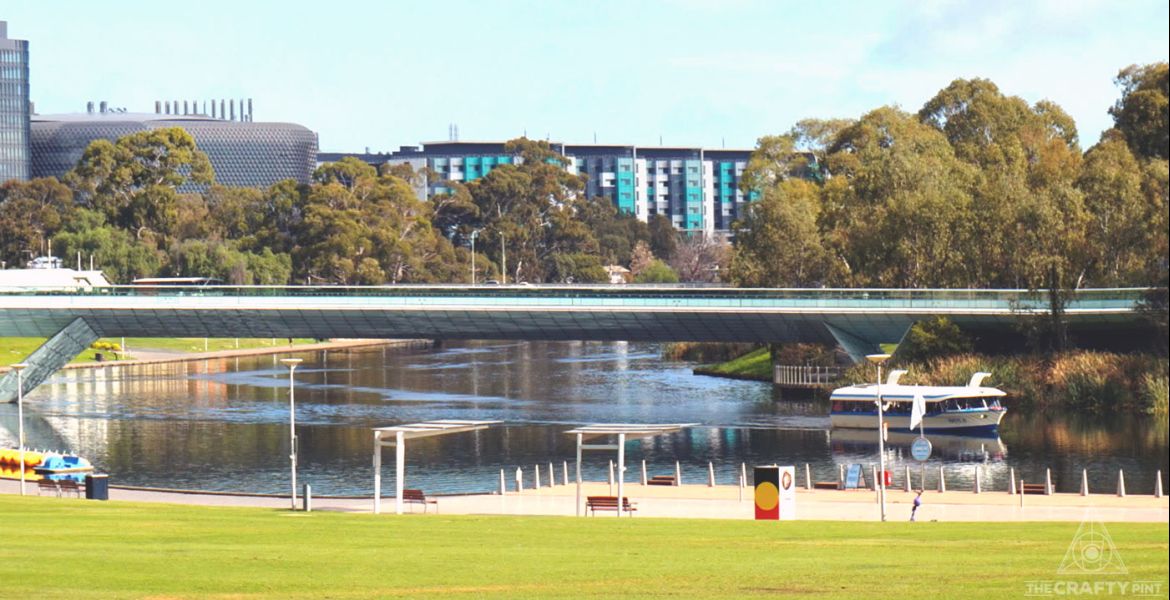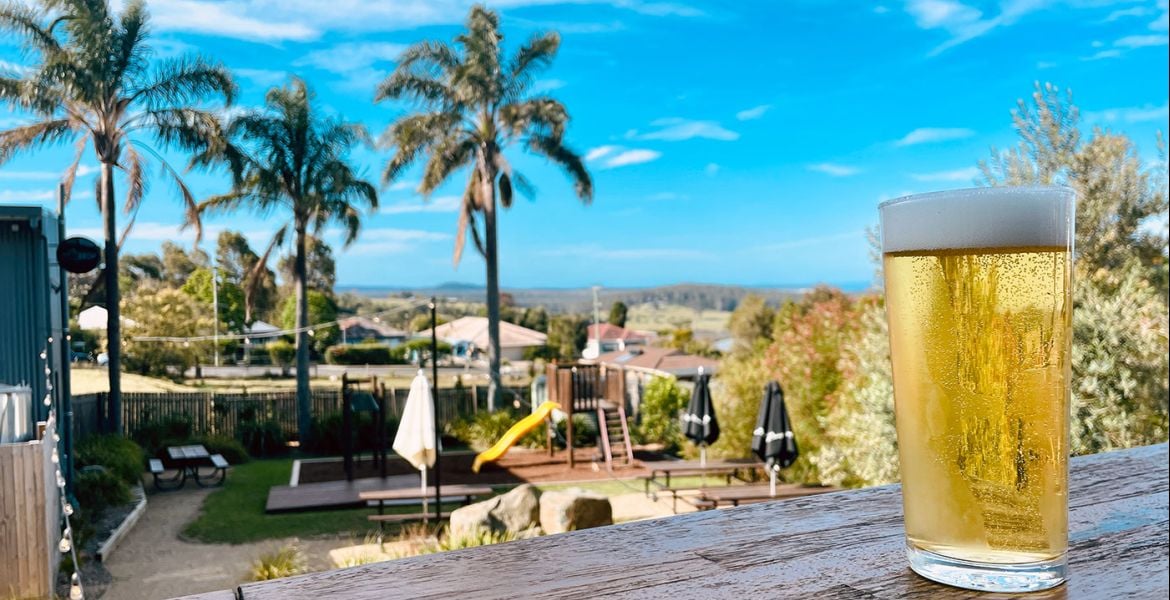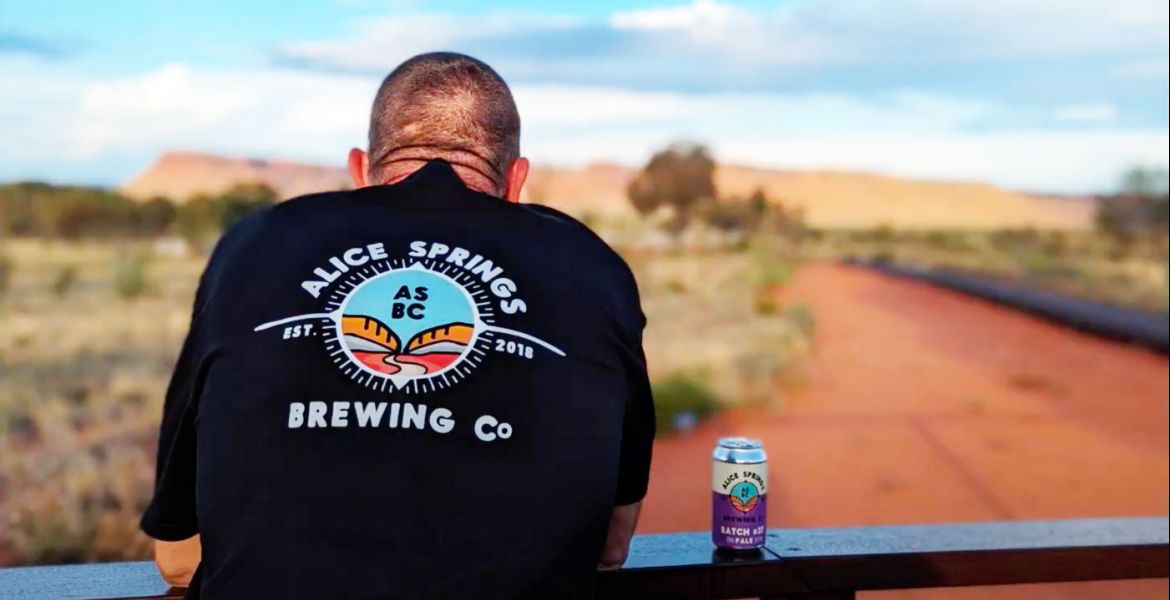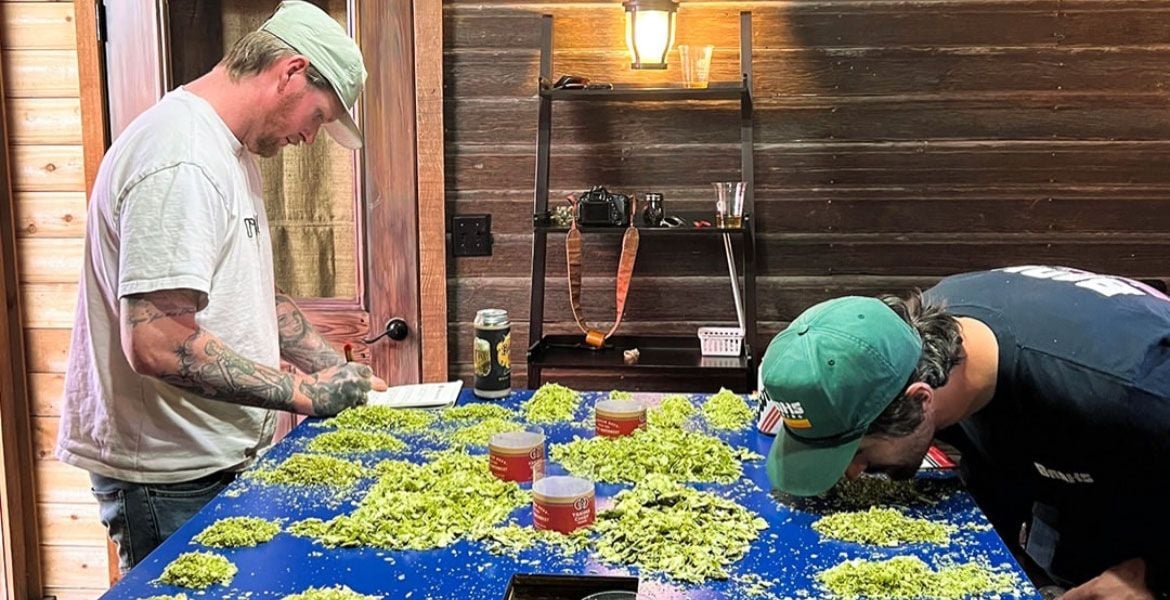In part one of his endeavour to hunt down good beer in Bali, Mick Wust focused on the offerings from Big Beer. In part two, he delves a little deeper...
If your biggest complaint about a trip to Bali was that you were limited to Bintangs on the beach, Euro lagers with pizza, and the odd stout on a rainy afternoon, you’d find it hard to garner much sympathy from your friends back home.
And yet many of us beer lovers won’t rest until we’ve tasted a drop that fits within that ever-shifting category of "craft beer", wherever we are on the planet. We want something brewed locally, ideally covering a few styles. We want something that’s been brewed with passion, and has the flavour to show for it. So, does anything in Bali fit the bill?
Storm Beer existed between about 2005 and 2011, but is, sadly, no longer. And newcomer Tumagè Beer popped onto the scene before disappearing again in 2017.
Which means, at time of writing at least, when we’re talking locally brewed craft beer in Bali, there’s really only one name with which you need to be familiar: Stark Beer.
It’s owned by Bona Budhisurya and Jacob Suryanata, two brothers-in-law who’d travelled the world, tasted good beer and become discontent with what was available in Indonesia. So they decided to add "craft brewery" to their list of successful business ventures. They launched Stark Beer in 2010, building a brewery in the northern Bali region of Singaraja. Since then, despite the anti-alcohol movement in Indonesia, Stark has enjoyed steady growth, resulting in new variants being added to the lineup, and a relaunch with new labelling in 2016.
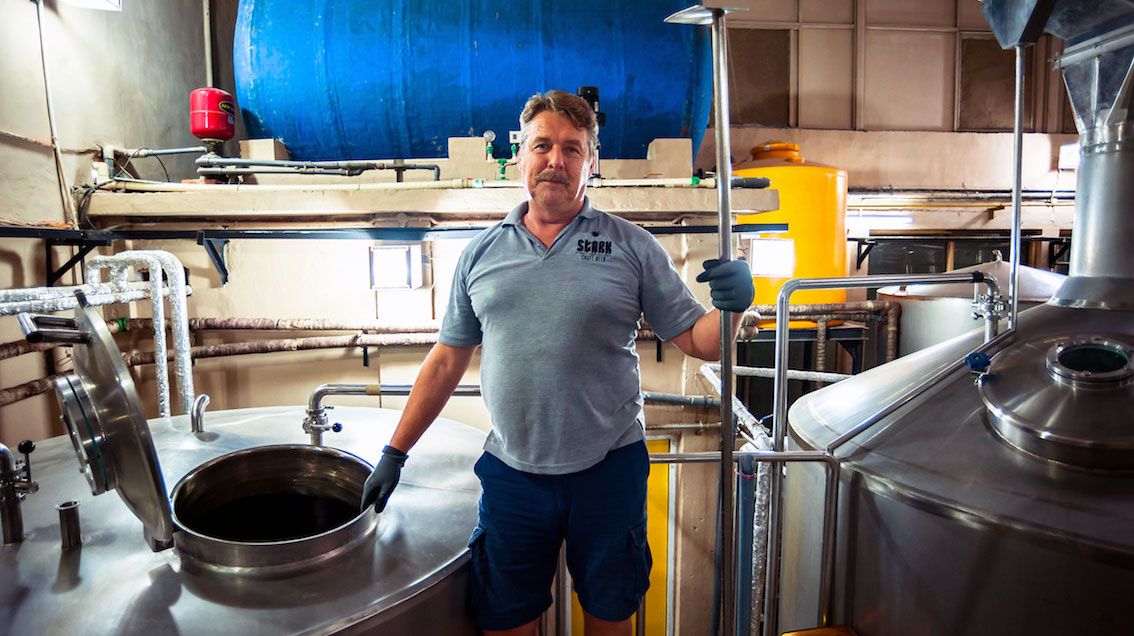
“We can produce 4,000 cartons a month,” says Australian head brewer Robbie Cocks, who joined Stark in 2016. “That’s when we’re really running at full peak. And all our product we make, we sell. It sells very quickly.”
Robbie’s brewing background includes setting up Ironbark Brewery in Swan Valley, ten years’ experience with CUB and a four year stint at Little Creatures. After a decade away from brewing to work in the mines, Robbie spotted an ad for the head brewing role at Stark.
“This job came up, and I answered it. I met [Bona] at a bar in Perth, and we had lunch, and the next thing I know I’m on a plane bound for Bali. Never been here before!”
The brewery itself is in a remote rural area, and for good reason: it’s built upon a spring of pure water, hundreds of metres below the ground, which they access via a simple deep water bore.
“We tap into water that’s very ancient, and it’s slowly coming down off the mountains… the water movement underground at that depth is very slow, but it’s prolific in terms of the volume. It’s volcanic water, if you like, filtered through basalt and all the ancient volcanic rocks that have built up over the years.
"I’m very impressed at the consistency. It’s always at a set pH; it’s clear, soft water, good for making pilsener, or fruit beers.
“It’s the best water I’ve ever come across.”
As well as this spring water, Stark uses a few other local ingredients where possible, partly to make the most of what Bali has to offer, and partly to give a sense of place to their beers. While the hops and malt are imported, each of the beers certainly does have a strong sense of Indonesian identity.
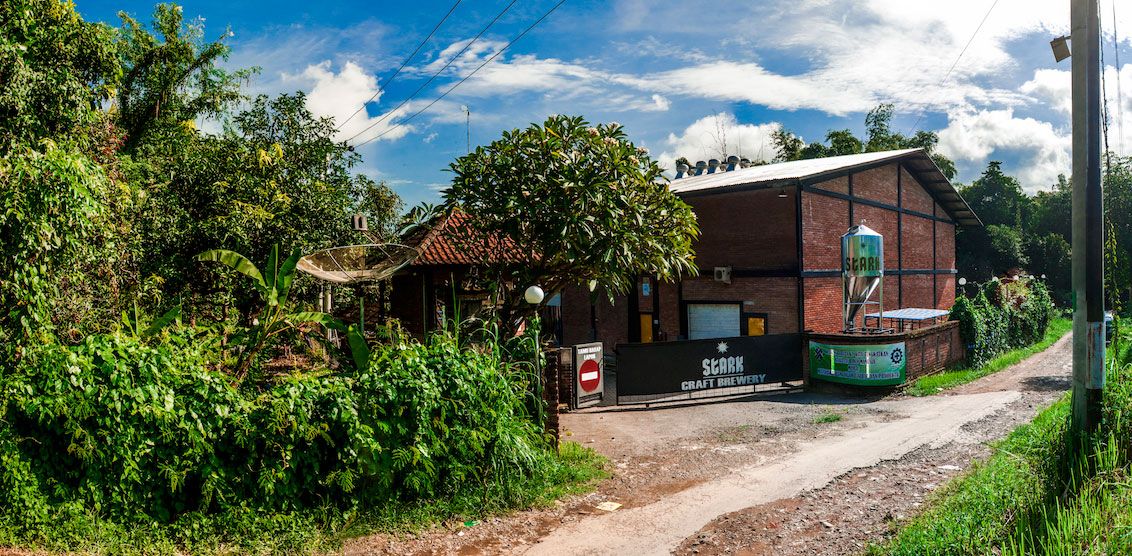
The first beers Stark brought to market were the Wheat Beer, the Dark Wheat and their 1945 Pilsener (which they release under a standalone brand, 1945), later adding Mango Ale, Lychee Ale, LC (Low Carb) Lager and Indonesian Pale Ale.
The Wheat Beer contains coriander, which gives a sharp spiciness to the aftertaste, and Balinese orange peel, which complements the gentle fruitiness of the esters and the Citra hops.
The Dark Wheat is part Flemish red ale, part dunkelweizen. It’s lighter in body and flavour than its European counterparts, which suits the tropical climate of Bali. There’s a little chocolate and coffee, but also raisins, black cherry and toffee.
The 1945 Pilsener is named after the year of Indonesia’s independence, which followed hundreds of years of Dutch colonisation and three years of Japanese occupation during World War Two. Made with 40 percent Balinese rice, it's a beer with a crisp finish, but also a touch of malt sweetness.
The Mango Ale and Lychee Ale live up to their names: sweet fruit beers that go down a treat on a sweltering day. The Mango Ale uses both unripened and ripe Indonesian mangoes, while the local lychees used in the Lychee Ale give it the same aromas you’ll experience walking through the fruit markets of Bali. (To be fair, though, about half of the fruits to be found at the markets in Bali "taste a bit like lychee" to the Aussie palate.)
The LC Lager is one of Stark’s biggest sellers. It’s bright in appearance and far more flavoursome than a you might expect from a low carb lager – the toastiness of the Vienna malt is accompanied by floral and crisp fruit characters. They’ve used the enzyme alpha amylase to give it a dry, light body. It’s almost too easy to down one of these, and equally easy to crack open the next one.
Their youngest offering, the IPA, is a bit cheeky; here, IPA doesn’t stand for India Pale Ale, but Indonesian Pale Ale. To target the Indonesian market, it's designed to display hoppy flavours without having the characteristic bitterness of an IPA. Australian Super Pride, German Magnum Hallertau and the American blend Fortnight (created for Aussie ingredient supplier Bintani's founder Pete Meddings if you're after another local connection) come together to create a tropical fruit sweetness, with delicate floral and citrus flavours. As the IPA increases in popularity, Stark is still seeking to improve it and is considering introducing lupulin hop powder to the recipe to boost the aromatics.
“We’re looking at developing it further,” says Robbie. “Maybe giving it a bit more aroma might help it really reach great heights.”
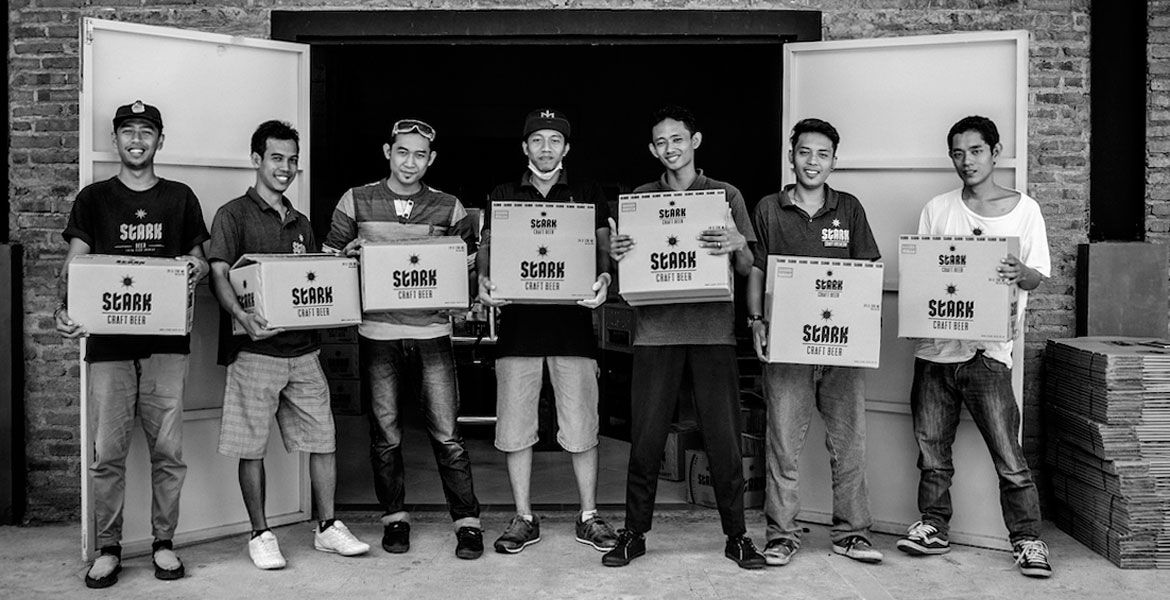
As most of Stark’s beers are sold in Indonesia, aiming their beers to suit the local palate makes a lot of sense – the Australian beer lover living on a diet of fresh IPAs and XPAs interspersed with the odd mixed ferment beauty when at home isn't the core demographic being targeted here. In Jakarta, Indonesia’s capital, the market is mainly Indonesians.
On Bali, however, it’s mainly foreigners drinking Stark, with a number of higher end cafes, restaurants and bars stocking the beers. Two key venues to check out are the Stark Beer Garden in Kuta, which has an astroturfed outdoor area, kitsch beer posters in the sleek interior and live music every night; and Potato Head, the ridiculously huge beach club in Seminyak with a modern art exoskeleton, an amphitheatre and an infinity pool looking over the ocean.
You’ll also find that many of the bottleshops on the island stock some or all of Stark’s beers.
“Even though there’s quite a good market for locals, especially them buying in cartons of beer for their own personal use at home… [it’s] mainly tourists coming in and drinking our beer,” Robbie says.
“Our sales are affected, for example, when Mount Agung misbehaves and the planes stop coming. It’s quite noticeable.”
Overall, Stark is experiencing a growth in sales, however, and is looking to upgrade its equipment and triple production capacity.
“We do export to Singapore, which then goes on to Hong Kong and Japan. But seriously, we can’t make enough. We’ve got to expand.
“Get a bigger boiler. We’ll keep the [3,000 litre] brewhouse, and just go to 10,000 litre capacity fermenters and brew continuously. Three eight-hour shifts. We’ll employ more people, and just go round the clock. Just continuously producing.”
With the difficulty of acquiring new production licences, it’s not likely Stark’s success will spark a boom in craft brewing in Indonesia any time soon. Hopefully, it can lay a foundation for a growing appreciation of good beer, which may lead to changes in the future. For the time being, however, at least there’s a locally produced craft beer option in Bali.
The importance of importing
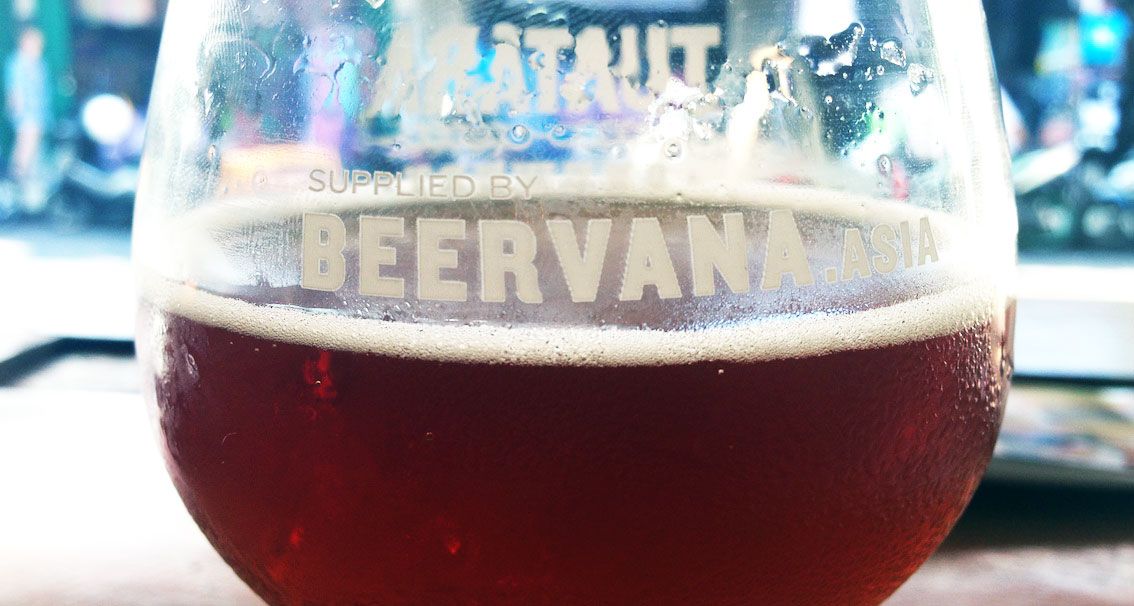
Importing alcohol into Indonesia is, as you might expect, much more expensive than producing it locally, not least because it attracts heavy taxes. But, if something’s worth having, it’s worth paying for. (Is that a saying? It should be a saying.)
Enter Beervana, importers of craft beer.
Beervana began in 2012, when two passionate former homebrewers from different industries came together with a shared mission: to bring craft beer to Thailand.
Americans Aaron Grieser and Brian Bartusch started a beer movement when they became the first importers to bring craft beer to Thailand, and since then, Beervana has become a leader within the vibrant scene the country now enjoys. They form strong partnerships with the breweries they distribute, they ensure cold handling from the breweries’ loading docks to the consumers in tropical South East Asia, and they invest in both people and infrastructure as necessary to see Thailand’s beer culture flourish.
But this article is about Bali and, in 2015, their story moved there: Aaron moved to Indonesia and met Ezra Alexander, a Canadian* who’d moved to the archipelago.
“We both moved here about the same time,” Ezra says. “I saw right away the lack of variety of beers here. There were maybe 60 beers on the market, but 95 percent of them were pilseners. And I was like, ‘Man, I should open up a little bottleshop. Somewhere to hang out.’ But I quickly realised there was no way I could do that on my own.
“I met Aaron about the same time, introduced by a friend of a friend… and he was like, ‘I’m thinking about trying to get Beervana here to Indonesia. We started in Thailand, and it's going really well.’ So I said, ‘Well, sign me up!’.”
They joined forces and launched Beervana in Indonesia in 2016, with Ezra as the general manager, seeing real potential in a country with a market still in its infancy.
Indonesia has a population of about 260 million. The majority of the population is Muslim, but mostly quite moderate in regards to alcohol, with most of the media attention revolving around vocal minority groups. However, even focusing only on the 13 percent of the population that isn't Muslim, you’re still left with a number five or six times the size of the population of Singapore, which has a thriving craft beer scene. Add to this the fact that there’s a growing middle class, with more disposable income than ever before and, in short, there are an awful lot of people who could be won over to craft beer.
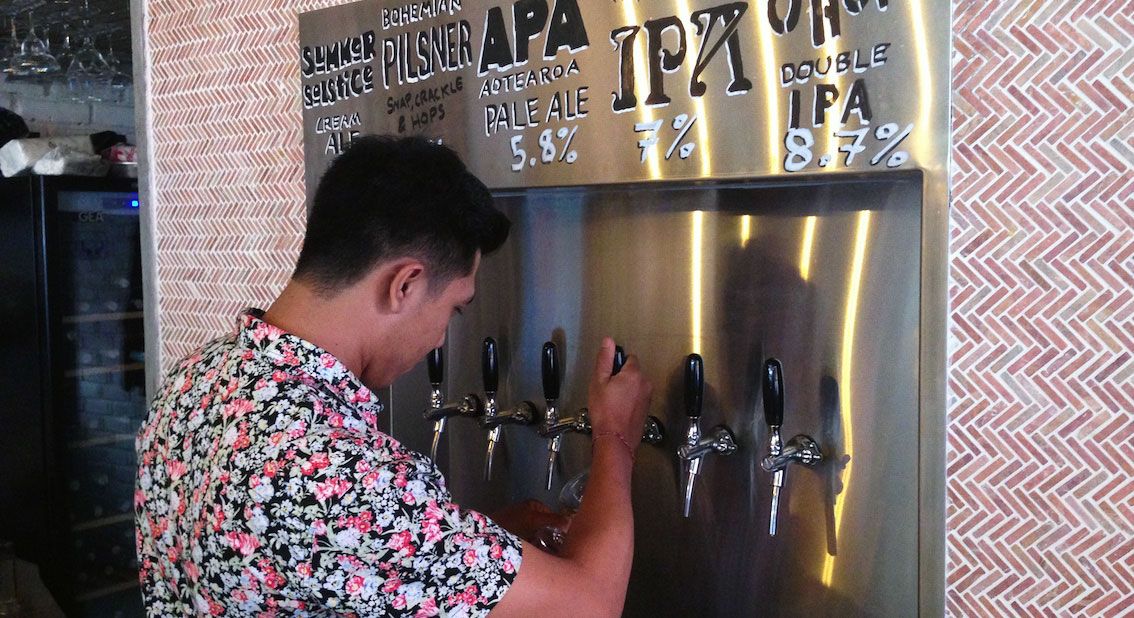
“We knew going into this that we need to have a local population get into craft to succeed,” Ezra says. “We’ve focused a lot of our time and effort on education: what is craft beer, explaining why it’s different.
"When we did our first test market, we did free samples for a long time, and sat with people and talked about beer. We had Indonesians who had travelled abroad coming in and going, ‘Finally! Our country has craft beer now!’ And then we had Indonesians who would come in and go, ‘Whoa! I didn’t know beer could taste so different! This is great!’ It was really cool to see their reaction.”
While the business is indeed growing, Beervana is taking the slow-and-steady approach. As well as educating drinkers, the team is placing a strong emphasis on building relationships in and around the industry and training venues.
They’re keen to introduce new kinds of beers to expand the scene, but also conscious of providing for the current market. While Thailand has adopted America’s and Australia’s penchant for hop-heavy beers, the preference in Indonesia is for easier drinking styles.
“We’re very selective about the brands we bring in. [The beer scene] is so new that if we just bring in a bunch of IPAs they’re just going to sit there. It’s too much for people, the palate hasn’t developed, that taste hasn’t developed yet.
“Our cream ale, the Summer Solstice from Anderson Valley, is the top seller in Indonesia. Negligible IBUs, no bitter aftertaste at all, a little bit sweet with the vanilla. We’ve re-shifted how we have to think. We’ve got to introduce the market with easier amber ales, cream ales, low IBU pale ales. Get them into the craft, and then we can start looking at the farmhouse ales, the IPAs, the sours.”
Beervana currently imports Anderson Valley (including Poleeko Pale Ale, Summer Solstice Cream Ale, Hop Ottin’ IPA, and Heelch O’ Hops Double IPA) and Deschutes (including Mirror Pond Pale Ale, Fresh Squeezed IPA, and Black Butte Porter) from America, and Tuatara (including Sauvinova Single Hop Pale Ale, Aotearoa Pale Ale, and Bohemian Pilsner) from New Zealand. And, in 2019, they’re set to bring in Founders Brewing, Canada’s Central City Brewing, and the Aussie-going-steadily-global Little Creatures.
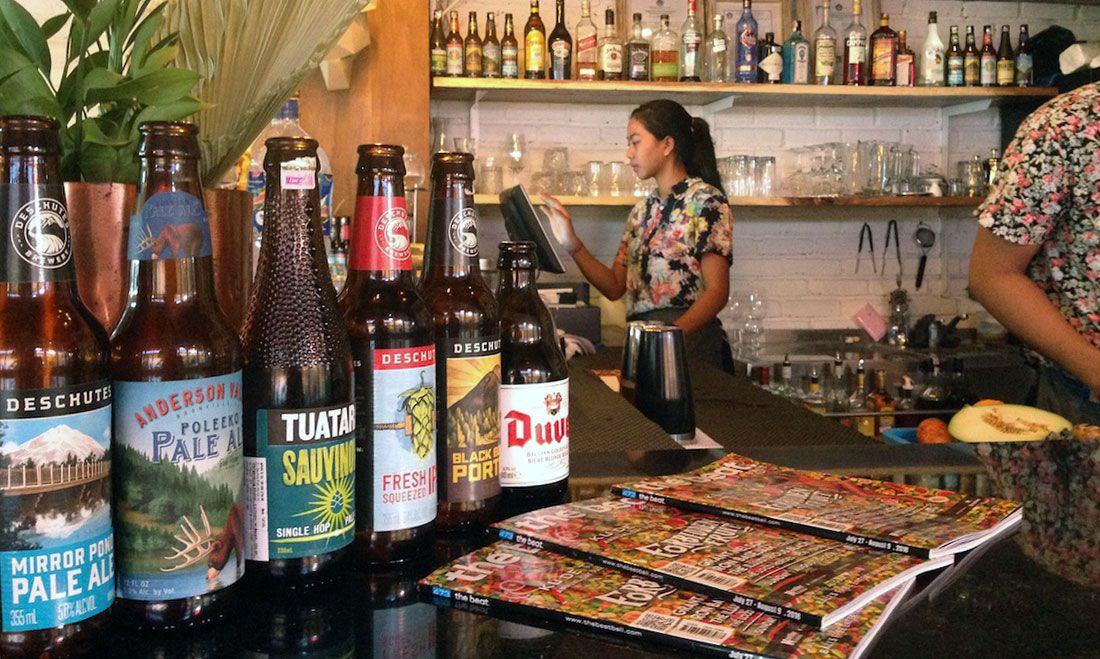
As with Stark, you have to hunt a little to find these beers – again, it's a case of seeking out higher end cafés, restaurants and bars, as well as dedicated bottleshops. There’s currently only one venue in Bali serving them on tap: Hoi Polloi in Seminyak, with the island's first all craft beer tap wall. Beervana set the venue up with its tap system and also helped them out with a beer garden, a beer menu complete with tasting notes, and beautiful glassware (including a taster size). As an aside, Hoi Polloi also have the best damn chips in Bali, but I don’t think Beervana had anything to do with that...
But before you jump on a plane to Bali expecting to get $2 IIPAs like they’re supermarket Bintangs, think again.
“We can never compete with the local market, because of the additional taxes that you pay for alcohol,” Ezra says, without mentioning Beervana also cold ships the beer halfway around the world to maximise freshness.
“But if you look at craft beer pricing here, Singapore, Thailand, Hong Kong… it’s all relatively the same. It just seems like a bigger disparity here because you look at your food cost. And so you see a big gap, and think, ‘How am I going to spend $10 or $12 for a beer when I’m eating my meal for $3 or $4?’.”
Unfortunately, it can indeed be tempting to scoff at that disparity. That is, until you take a step back and look at the bigger picture.
“Interesting story: I was in Ubud, I think at Melting Pot Saloon, and there was a Kiwi drinking Tuatara, one of our beers. The guy had had several, and the owner asked him, ‘You don’t mind paying eight, nine, ten dollars for a beer?’ And the guy said, ‘This is the same price I’d pay back home in New Zealand. And I’m drinking this beer up in Ubud. I think that's amazing!’ I thought that was an interesting perspective.”
He may have had a few, but that Kiwi was seeing clearly. $10 for a beer in paradise? What a bargain.
Back to the beginning
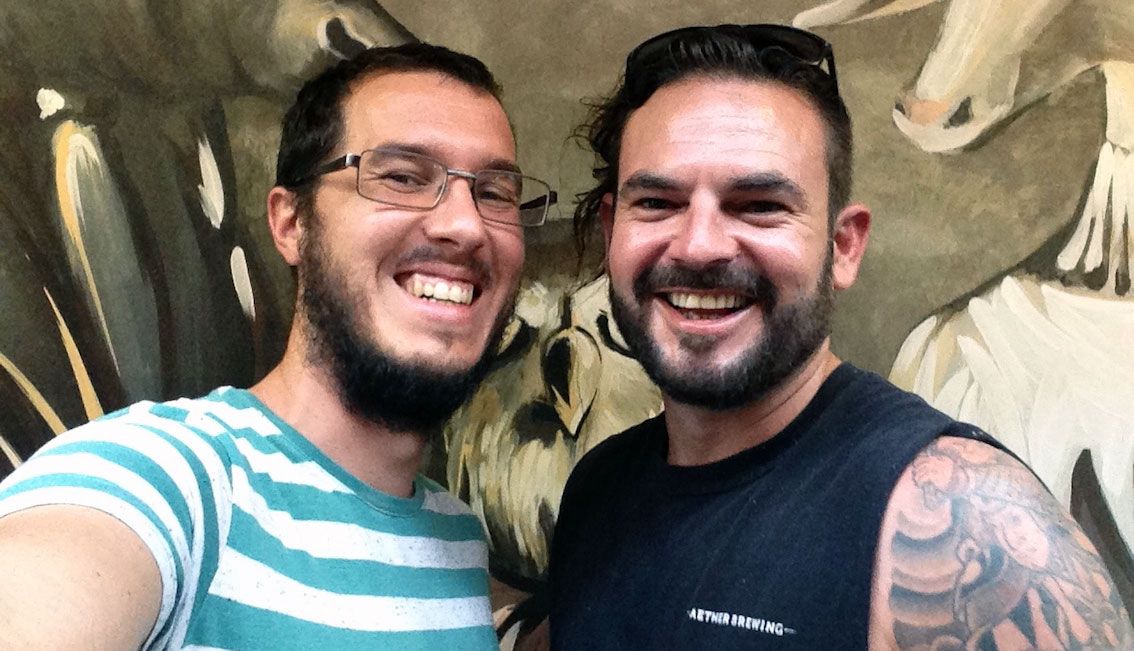
“Is there any good beer in Bali”?
Yeah, there is.
Sure, it’s a young market. It’s not buzzing with NEIPAs, there’s nary a RIS or lambic to be found, and you’ve gotta do a little homework to find somewhere with craft beer.
But there’s an up-and-coming middle class looking to taste new things. There’s a local craft brewery that’s growing steadily. There’s a team of importers passionately investing in education, training and awareness.
There’s the light-yet-dark San Miguel Negra and the heavy-yet-light Duvel. There’s Stark’s subtly fruity LC Lager and unsubtly fruity Lychee Ale. There’s the hoppy Aotearoa Pale Ale and the hell-yes-hoppy Heelch O’ Hops Double IPA.
But you know what? There's also this:
On my last day in Bali, I caught up with Jimmy from Brisbane's Aether Brewing for a few beers. We went to Hoi Polloi and revelled in the incredible beers on offer. The beauty of a IIPA after three weeks of 5 percent beers made me weak at the knees.
After that, we walked down to the beach and bought a couple of Bintangs. We sat on beanbag chairs and watched the sun slowly sink into the water, with our feet in the sand and our beers at hand.
And that Bintang was the best damn pilsener I’ve ever had.
Venues stocking beers from Beervana on Bali include:
- Hoi Polloi, Legian
- Sacred Ground, Legian
- Beer & Co, Legian
- Potato Head, Seminyak
- Tiffin, Seminyak
- Sarong, Seminyak
- Mama San, Seminyak
- Tiger Palm, Seminyak
- Vin+, Seminyak
- The Melting Pot Saloon, Ubud
- Kismet Boutique & Bar, Ubud
- No Mas, Ubud
- Beer Brothers, Ubud
- Bottle Avenue, Ubud
- The Compass, Canggu
- Lovster, Canggu
- Beer & Co, Canggu
- Drifter Cafe, Uluwatu
More here too.
You can read part one of this feature here and find other Beer Travel articles on The Crafty Pint here.
* The article originally said American.




